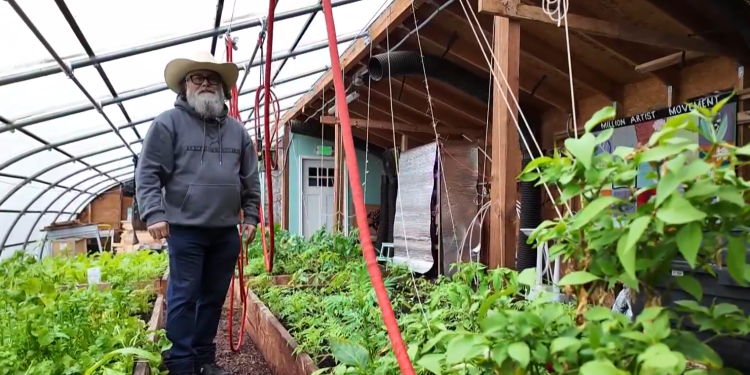#UrbanFarming #SustainableAgriculture #DeepWinterGreenhouses #FoodInsecurity #AgriculturalInnovation #EnergyEfficiency #CommunityResilience #MinnesotaAgriculture
In the heart of Minneapolis, amidst the winter chill, an innovative solution to year-round farming is thriving: deep winter greenhouses. These specialized structures are not only defying the harsh cold but also reshaping the landscape of urban agriculture. Designed to maximize passive solar energy, deep winter greenhouses offer a beacon of hope for combating food insecurity and promoting sustainability.
At the forefront of this agricultural revolution is the deep winter greenhouse located at E 28th St and 15th Ave S in Minneapolis. Operated by Tamales y Bicicletas, a non-profit organization dedicated to urban farming, this greenhouse exemplifies the potential of sustainable agriculture in cold climates. By harnessing passive solar energy through a unique design, this greenhouse cultivates a variety of produce, including heavy greens, cilantro, jalapenos, and peppers, even in the depths of winter.
The key to the success of deep winter greenhouses lies in their innovative design features. With three heavily insulated walls and a south-facing glazing wall, these structures capture and retain solar heat, creating a warm and conducive environment for plant growth. An underground duct system further enhances heat storage and circulation, acting as a thermal battery to sustain optimal temperatures.
Despite the challenges of cold weather, deep winter greenhouses demonstrate remarkable energy efficiency. Compared to conventional greenhouses, they consume significantly less energy, resulting in lower operating costs and reduced environmental impact. In fact, the greenhouse at E 28th St and 15th Ave S boasts a monthly energy bill of only $200, showcasing the economic viability of this sustainable farming model.
Encouraged by the success of urban deep winter greenhouses, the University of Minnesota Extension Service is now expanding this initiative to rural areas through a farm-scale partnership opportunity. With a grant of $25,000, farmers outside the metro area can build and maintain their own deep winter greenhouses, empowering communities to embrace sustainable agriculture practices.
The impact of deep winter greenhouses extends beyond economic benefits, as demonstrated by Tamales y Bicicletas’ contribution to food security. Through donations to local food shelves, they exemplify the potential of urban farming to address hunger and promote community resilience. As applications for the farm-scale partnership continue to pour in, the future of deep winter greenhouses looks promising, heralding a new era of sustainable agriculture in Minnesota.











